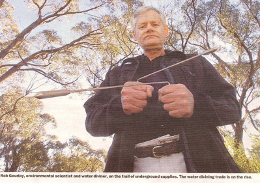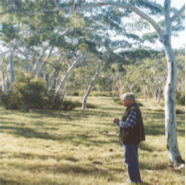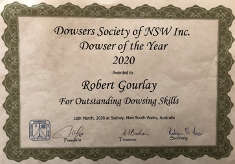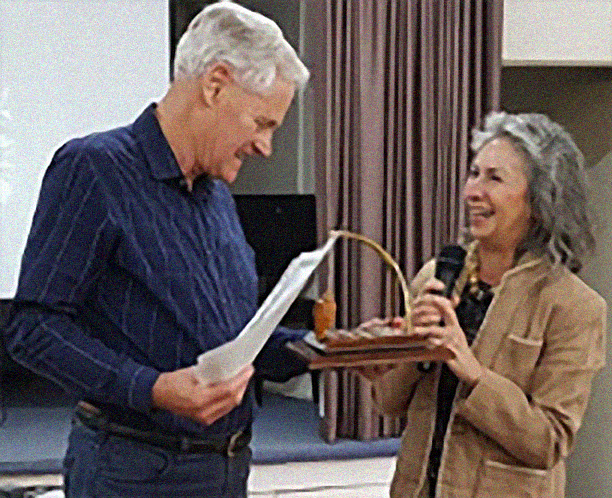Groundwater Divining
Divining is recorded as part of human culture since early times, with cave drawings and Egyptian hieroglyphs attesting to this ancient practice. At some point, early humans found that they could know where to find minerals (eg. copper and gold), groundwater, or whether a particular plant was healthy to eat or toxic.
The concept of divination is embedded in the cultures of many countries; China had a symbol for divine, and divining became an art form for the elites in society, particularly in Britain.
Dowsing is a practice whereby an individual divines the location of water and other objects. But what was its original purpose?
It is likely that dowsing was originally used to divine the will of the gods, most particularly in the areas of telling the future and determining guilt in legal trials. Apart from the ancient images of people holding divining rods or staffs, 15th century Germany is most noted for the development of the modern aspects of dowsing.
Dowsing was mainly used to find underground sources of metal, and the technique spread through Europe when German miners were brought to England to locate coal mines for Queen Elizabeth I (from 1538-1603). These German dowsers were later discovered teaching their trade in Wales around 1638.
As readily as the practice of dowsing was accepted at first, it did not take long before the church caught wind of this fortune-telling and in 1659, the Jesuits declared dowsing a satanic practice.



Phi’on Chief Scientist Robert Gourlay has been using dowsing since 1988 and professionally since 1995, mainly in groundwater exploration. He combines unique geophysical mapping techniques with dowsing to locate groundwater bores with an accuracy exceeding 90 per cent.
In many respects, dowsing is the entrainment of energy from the object of dowsing (eg. groundwater) to the dowser’s intention, and through the divining rods as the antenna for entraining the energy to the body. That is, dowsing is a conscious process of awareness about the energy of all matter and tapping into information that is universal energy. Everyone could dowse, however not everyone wants to or is attuned to this natural process.
However, as long as farmers accept dowsing or diving as the most cost-effective way to locate groundwater, then this practice will be around for many centuries to come as it has served society for many centuries before.

In 2020 Rob was awarded the Dowsers Society of NSW’s highest award of Master Dowser.
